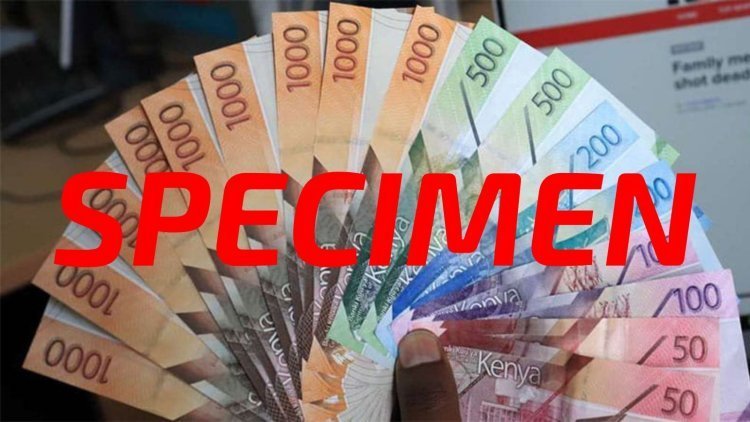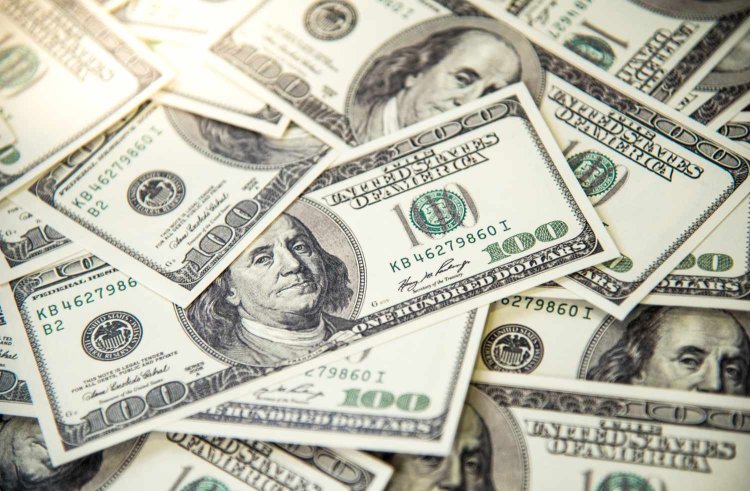Biggest Business Losers As Kenyan Shilling Stamps Authority Against Dollar
This surge has been attributed to a combination of strategic interventions by the Central Bank of Kenya (CBK) and a robust influx of foreign investments, particularly in Kenyan domestic debt securities.

The Kenyan shilling has recently witnessed an unprecedented resurgence against the United States (US) dollar, posting its strongest single-day gain in 12 years.
This surge has been attributed to a combination of strategic interventions by the Central Bank of Kenya (CBK) and a robust influx of foreign investments, particularly in Kenyan domestic debt securities.
According to Treasury Principal Secretary (PS) Chris Kiptoo, the shilling's dramatic rise was attributed to investors' confidence drawn from the government's move to buy back the Ksh316 billion (USD2 billion) Eurobond maturing in June 2024.
"I want to encourage Kenyans that the risk of failure to settle for the Eurobond is gone. Sell your dollars and get back to business. Don't do any speculation anymore,” Kiptoo advised.

An image of US dollars. /GETTY IMAGES
"The issue has been addressed. There is now confidence and you can tell the shilling is beginning to improve. As of this morning, I was told it was trading at 151 units and yesterday it was at 157, and previously it was at 160 and that is very good news."
However, despite the good news this brings for the Kenyan economy, some businesses stand the risk of being hit hard by the turnaround in fortunes, with some banks buying dollars as low as Ksh130 while selling as high as Ksh153.
Viral Tea takes a look at the biggest losers of the Kenya shilling resurgence against the US dollar:
Kenyans Hoarding Dollars
Though not a business, Kenyans who had been hoarding dollars stand the greatest risk of making losses, should this trend continue.
The depreciating shilling against the dollar offered a honeymoon period for them but the latest developments are having them come back to reality, forcing many of them to dispose of their dollars in fear of the US dollar continuing to lose out to the shilling.
On Thursday, February 15, Deputy President Rigathi Gachagua, while speaking in Murang'a County, urged Kenyans to sell their dollars.
"I told Kenyans the truth. I told those who had hidden dollars in their homes to sell them, but they didn't listen to me. The President has made plans and the dollar has now dropped,” said Gachagua.
He added, “I want to tell Kenyans with dollars to sell them today, tomorrow, and the day after tomorrow. If you don't sell, you will incur a big loss. This dollar will reach one hundred. If you lose, don't ask me anything."
Real Estate
Select landlords in Nairobi and other major towns who had been recently charging rent in dollars as opposed to shillings may have to reverse their fortunes, moreso if tenants revolt and go back to paying rent in shillings.
The charging of rent in dollars became a popular trend in 2022 when the Shilling began to drop in value. Most property owners who charged in dollars are those with rental and commercial space within posh estates.
Posh estates within Nairobi mostly host multinational companies hence the move by landlords to charge rent in dollars, but the U-turn could turn into a loss-making process in a huff.
Just recently, Knight Frank Kenya in its Kenya Market Update report covering the second half of 2023 termed the decreasing demand in office spaces to, you guessed it, the shilling losing to the dollar.
"However, due to the persistent loss of purchasing power of the Kenyan shilling against the USD, landlords face losses when collecting rent in KES while servicing dollar-denominated loans. In response to this exchange rate challenge, landlords have increasingly favoured collecting rent in dollars, a trend expected to continue in the long term," stated the report.
Workforce
President William Ruto's initial assurance of youth employment in multinational firms that pay their workforce in dollars might be negatively affected if this trend continues.
Earlier this month, while addressing a gathered crowd in Bungoma, the President told the area leaders to ensure that there would be an establishment of an ICT hub which, he said, would be instrumental in ensuring that the area youth would find something meaningful to do and pocket a few dollars while at it.
"Huyu akijenga hio ICT hub, mimi nitahakikisha iko computer. Na nitahakikisha iko Internet. Na nimepanga ajira ya hawa vijana kufanya iyo kazi. Nyinyi vijana wa hapa kazi yenyu ni mbili... Ku appear huko kufundishwa, na kufinya computer uweke dollar mfukoni," he said.
"Wewe utashindwa kufinya computer ndio upate pesa? Na wewe sasa ukishindwa kufinya computer nitakusaidia namna gani?" he asked.
Loosely translated to: "When the ICT hub is built, I'll make sure there are computers and internet. I have made plans for youth to work in online jobs. You young people, you have two things, to show up, be taught, press on the computer and pocket dollars."
"Will you struggle to operate a computer so that you make money? When you cannot operate a computer, how can I help you?"
The youth won't be alone. Kenyans working for international organisations who are paid in dollars and who enjoyed the spell of the depreciating shilling will get a rude shock under being able to now convert and get less Kenyan Shillings for the same salaries that they got when the local currency was struggling.

A person working on his laptop. /FILE
For example, if an employee is paid USD 1,000 at the end of this month, they could take home Ksh145,500 or less if the current trend continues. This would be a drop from the Ksh161,750 per month they were being paid in January as compared to Ksh123,000 in the same month last year (when the dollar averagely traded at Ksh123).
The workforce in this case also includes those running online media channels that include websites and social media platforms such as TikTok and YouTube who monetize their content through platforms such as Google Adsense.
Export
Kenyans exporting products to America and Europe could stare at losses as they ply their trade in dollars. Earlier this year, some of the exporters in the country recorded increased earnings owing to the depreciation of the shilling, with some of the big beneficiaries being tea and avocado exporters.
For instance, Kenya earned Ksh29.7 billion between February -March 2023 in comparison with the corresponding period in 2022 (Ksh 26.9 billion) despite producing less tea for exports. This is because the dollar traded at Ksh127 between February to March 2023 as compared to Ksh113 (February to March 2022).
Some of Kenya's main exports include coffee, flowers, and avocado. Private businesses in the fashion and textile industry also benefitted in some ways from the Shilling's depreciation, a move that is likely to see them now lose out if the Shilling continues to gather momentum against the dollar.
Biggest Winners
On the bright side, importers stand to win from the change in fortunes, ending turbulent periods of being charged more to ship products into the country.
The depreciating shilling had led to the high cost of the importation of goods for businesses, which had forced them to pass down the importation costs to Kenyans' pockets, leading to high prices of products. However, the strengthening shilling could reverse this.
This was evident merely 24 hours ago when the cost of fuel was lowered again by the Energy and Petroleum Regulatory Authority (EPRA) for February 15 to March 14.
Right now, the price of Super Petrol, Diesel and Kerosene is retailing at Ksh206.36, Ksh195.47 and Ksh193.23 down from Ksh207.36, Ksh196.47 & Ksh194.23 respectively, with any price change in fuel having a ripple effect on most sectors of Kenya's economy, including matatu fares.
Other products that could win from the strengthening shilling include motor vehicles, imported food and beauty products as well as technology that includes smartphones.

 admin
admin 




